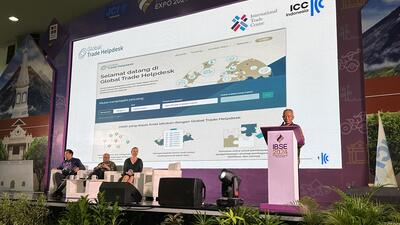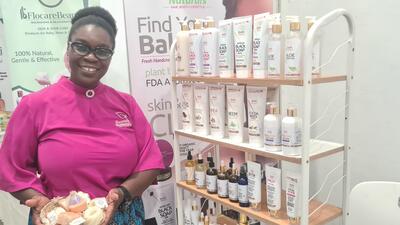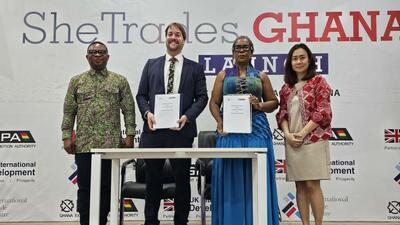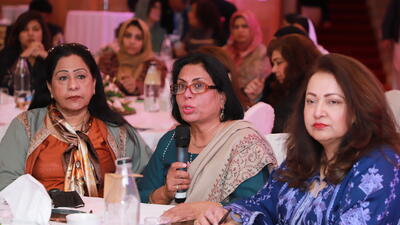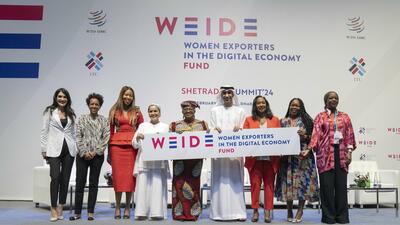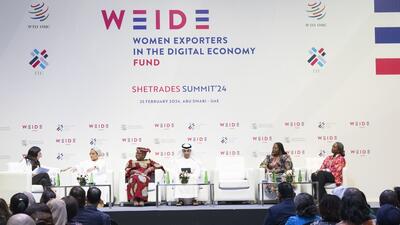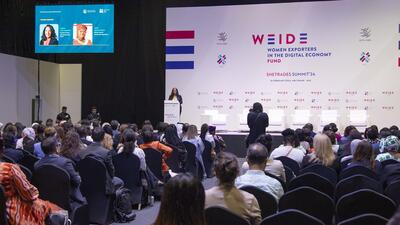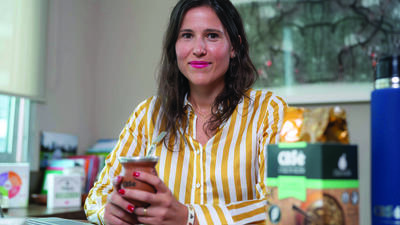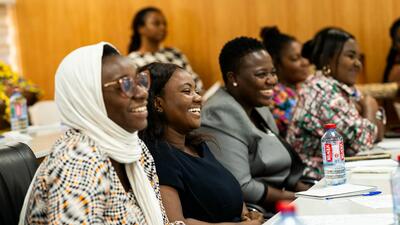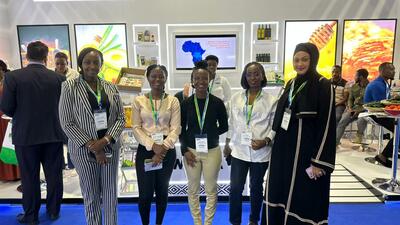
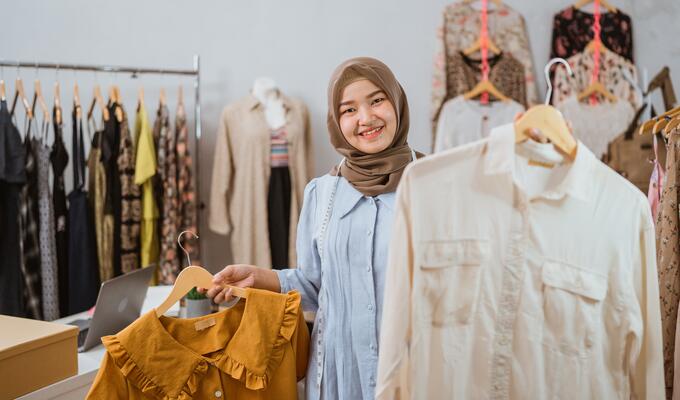
Indonesia to see more procurement from women-owned businesses
The International Trade Centre recognizes that partnerships can contribute to impactful projects and sustainable outcomes. To celebrate the teamwork behind the Partnerships4Purpose efforts, ITC is proud to highlight game-changing initiatives that are made possible through strong and meaningful collaboration.
(Geneva/ Tangerang, 18 July 2022) The International Trade Centre (ITC) and Unilever today announced its partnership agreement to enhance procurement from women-owned businesses in Indonesia. This will catalyse the country’s gender equality and women’s economic empowerment. The partnership unites ITC’s expertise on women-owned micro, small and medium sized-enterprises (MSMEs) with Unilever’s experience in fostering inclusivity and sustainability within value chains.
The collaboration will build a pipeline of eligible women-owned suppliers to advance Unilever’s commitment of spending €2 billion annually on diverse businesses worldwide by 2025. Additionally, the partnership will build the technical capacities and capabilities of Indonesian women-owned businesses to comply with the sourcing requirements of large corporations such as Unilever.
Background
Each year, corporations spend trillions of US dollars acquiring goods and services, yet less than 1% of the total spend is earned by women[1]. By overlooking women-owned businesses, corporations are missing an opportunity to expand their markets, diversify their supply chains, and grow the economy, while simultaneously improving the lives of women around the globe. Women-owned businesses are a key driver of economic growth, creating four out of five new jobs in emerging markets and owning one-third of all businesses worldwide[2]. Investing in women is not only socially responsible, but also smart economics.
In the context of Indonesia, women own more than 60% of MSMEs in the country[3] and are vital contributors to the country’s economy. Although the country has made great strides in championing women’s economic empowerment, most women-owned businesses operate in the informal sector that bottlenecks their access to institutionalized support and resources.
‘As we begin our global economic recovery efforts, procurers are now presented with the opportunity to significantly alter the way we do business – for the better. Giving women across value chains equal access to economic opportunities is not only a right but also a gateway for inclusive and healthier societies. We must continue to not only support them through capacity building, but also to expand upon our joint efforts with the private sector and international corporations such as Unilever to provide greater opportunities for gender-inclusive procurement.’
Anders Aeroe, Director, Division of Sustainable and Inclusive Trade, International Trade Centre
‘Data suggests that there is an opportunity of $28 trillion growth on global GDP expansion with the equal participation of women in the global economy by 2025[4]. Therefore, it is important that all stakeholders play their role in the collective efforts to bridge the gap towards gender equality. And in meeting one of the Unilever Compass’ goals, which has a pillar focused on contributing to a fairer, more socially inclusive world, we are working to provide such environment where women can take on a bigger role in the global economy, for example within our supply chain network. The aim is to actively diversify our supply chain partners by working with more businesses owned by women and people from under-represented groups. We believe that by building a more diverse and inclusive supply chain we will unlock more innovation, agility, and opportunity within both our suppliers' businesses and ours.’
Nurdiana Darus, Head of Sustainability and Corporate Affairs, Unilever Indonesia
The collaboration significantly advances the International Trade Centre and Unilever’s commitment to achieving the Sustainable Development Goals (SDGs), especially Goals 5 and 8, which focus on gender equality and decent work, respectively.
[1] Vazquez & Sherman, 2013
[2] International Finance Corporation, 2022
[3] The International Journal of Social Sciences and Humanities Invention, 2020
[4] B20 Women in Business Action Council, Policy and Action Recommendation, 2022




